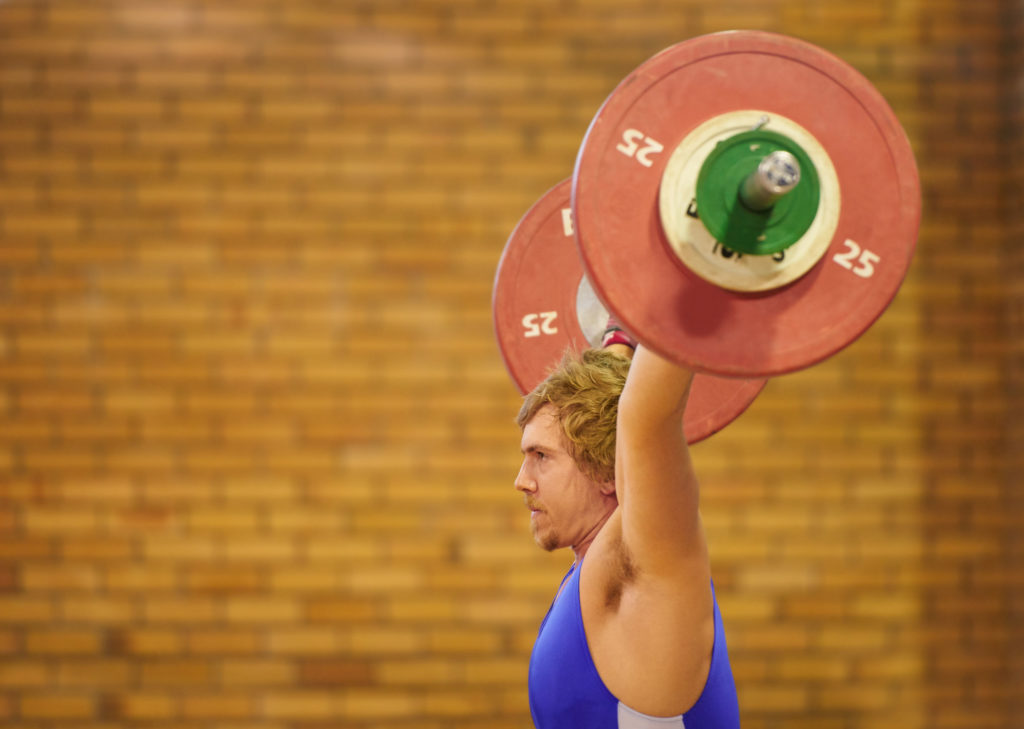I’ve often be anointed as the “guy who dislikes or hates overhead pressing” on the internet. Given it’s the internet, this is pretty good. There are worse things to be called.
The statement itself isn’t entirely false.

However, it does need to be tweaked:
“I am not against any one exercise or feel a exercise in particular needs to be contraindicated 100% of the time.1 I do feel there are contraindicated lifters and exercisers.”
Point blank, most people move like shit; especially overhead. And while it’s a blanket comment to make, and there’s a degree of N=1, I’ve-been-coaching-people-for-14-years-(eight of which in a facility where a bulk of the clientele were overhead athletes)-I-know-what-I’m-talking-about, snootiness involved, if you watch most people attempt to do anything overhead, the proof is in the pudding.
First off, pudding is delicious.
Second, here’s what you (tend to) end up seeing:
This:
Take note of the picture to the left. Excessive lumbar extension, massive rib flair, and forward head posture.
Or This:

A cascade of clusterfuckery. <– Not the scientific term, but you get the idea.
Now, to be fair: there are plenty of people who perform overhead pressing movements like the ones pictured above and never have any issues. They’re the outliers. You (and your clients) are likely not them.
In my world…“people need to earn the right to overhead press.”
We spend very little time overhead on a day-to-day basis. Unless you’re paid to hurl 95 MPH heaters 60.6 feet, are an competitive OLY lifter, or, I don’t know, are obsessed with jazz hands…you (probably) don’t spend a lot of energy within that range of motion.

Photo Credit: www.medfordpublicschools.org
To reiterate: I am not against overhead (or vertical) pressing. It’s a basic movement pattern that should be trained or utilized in the weight room and/or in everyday life. There’s a bevy of benefits that result from it. Unfortunately, for a vast majority of people, due to any number of factors ranging from lack of lumbo-pelvic control, tight/overactive lats, scapular dyskinesis (stemming from soft tissue or structural/capsular issues), and Upper Cross (computer guy) Syndrome, it becomes problematic…and “bad things” end up happening.
NOTE: for those who want to geek out more on this topic and read more of thoughts on upper extremity assessment, overhead mobility, etc, you can go HERE and HERE and HERE.
I prefer not to dwell too much on what people can’t do, and more so on strategies that 1) may be a better fit at that point in time 2) are more “joint friendly” and 3) help to still increase one’s overall level of badassery.
Tall Kneeling Overhead Press – off Bench
Who Did I Steal It From: strength coach Joel Seedman.
What Does It Do: It still trains the overhead press, albeit in a fashion that’s a little more joint friendly. By performing this exercise tall kneeling (and on a bench….where there’s only two points of contact rather than four) a few things happen:
1) It makes it much harder to compensate through the lumbar spine. If that happens, you fall off the bench.
2) It forces the lifter to use a lighter load. I believe Joel has mentioned in the past that with this variation you can expect to use 80-90% of what you’d normally be able to do with a strict overhead press.
3) There’s an immense amount of core engagement.
Key Coaching Cues: Don’t be a hero: go light. Once in the tall kneeling position, be sure to turn on glutes and to brace the abs. As you press overhead the idea is to keep the rib cage locked down throughout duration of the set.
Have fun.



